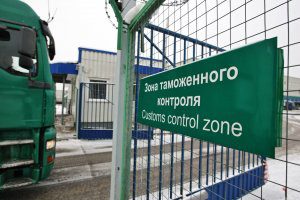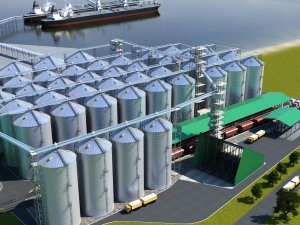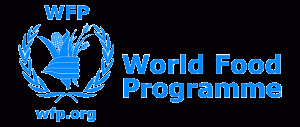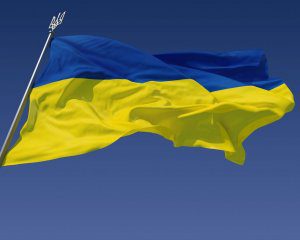
ODESA. Nov 3 (Interfax-Ukraine) – Head of Odesa customs center Yulia Marushevska has signed a resolution that permits customs clearance for goods imported from 30 countries to be carried out at the contract price if the goods come with a certificate of origin.
Marushevska wrote on her Facebook page that this concerns the following countries: Australia, Austria, Belgium, Canada, the Czech Republic, Denmark, Estonia, Finland, France, Germany, Greece, Hungary, Iceland, Ireland, Israel, Italy, Japan, Luxembourg, the Netherlands, New Zealand, Norway, Poland, Portugal, Slovakia, Slovenia, Spain, Sweden, Switzerland, UK and the U.S.
“First, in national customs practice, the benefit of the doubt is given to business. We’re expecting that with the introduction of this relaxed approach, goods flow will increase. This resolution will also help to remove manipulations of the definition of the customs value,” she said.
Marushevska has partially revoked the assessment of imported goods at so-called indicative prices at Odesa customs center. The indicative prices scheme was introduced in 2008 to compare the cost of goods imported to Ukraine with information on the same or similar goods contained in a specialized database.
She said this was done to prevent importers from setting the price of goods too low deliberately to cut official customs fees. In practice, the scheme turned out to be easily used to facilitate corruption: customs officers could reduce the indicative assessment or not apply it at all to facilitate a bribe. Customs officers set the indicative assessment too high for other importers, to ensure that they also received a bribe.

Businesspeople have called on the Ukrainian authorities to introduce tax reform as quickly as possible and support a number of the provisions put forth by the parliamentary committee for tax and customs policy. At the same time, entrepreneurs are concerned that there is no consensus on fundamental changes to the simplified taxation system. Representatives of the business community do not support the preservation of VAT accounts and the deposit system they use, when assets are simply “frozen” and do not work for the real economy. They insist on reducing the burden on the payroll fund, and also raised other issues. These were the subjects discussed at a round table meeting entitled “Prospects for the Development of Small Businesses in the Context of Tax Reform.”
“Dragging out the modernization of taxation causes uncertainty in the formation of a budget, as it has been declared that the state budget for 2016 must be formed on a new tax base. This destroys the remaining investment climate in Ukraine, and businesses are unable to give their economic outlook for 2016, and draw up a high-quality financial plan, develop tactics and strategy on the domestic and foreign markets,” the participants of the round table meeting said in a joint statement.
It was said that the problems of the Ukrainian economy should be solved by improving the business climate rater than by increasing fiscal pressure. And this is the way for searching compensators for budget revenues. Administrative, fiscal methods will have a negative, reverse effect in the sectors where households’ solvency is too low and businesses operate in adverse conditions.
Every effort should be made to keep the simplified taxation system, as it is the main incentive for private entrepreneurs to do own business. Small- and medium-sized businesses as well as self-employment is now a lifeline for people, as Ukraine’s backbone industry is in a plight, which, along with necessary processes of economic modernization and diversification of markets, becomes a cause behind layoffs. It is a small-size business that is able to prop up economic activity, solve the problem of unemployment and supply goods and services on markets. Resisting this at the state level is equal to suicide.
Experts and entrepreneurs stressed the need for a real reduction in taxes and fees, simplification of administration and the introduction of personal responsibility of fiscal officials for inappropriate actions against entrepreneurs.

The business communities of Ukraine and Lithuania will deepen their cooperation with the launch of a free trade area between Ukraine and the EU. Lithuanian political and business circles seek to actively cooperate with Ukraine to contribute to its further integration into the EU and share their experience on the benefits and risks along this way. These issues were on the agenda of a workshop entitled “Opportunities and Prospects of Business Relations between Ukraine and Europe,” which was organized by experts from the Lithuanian Confederation of Industrialists in the Ukrainian capital of Kyiv.
The event was the first to be held under an Eastern Partnership educational project, which was organized by the Ministry of Foreign Affairs of Lithuania for NGOs of industrialists and entrepreneurs of Ukraine. The project is being implemented thanks to cooperation between the Ukrainian League of Industrialists and Entrepreneurs and the Lithuanian Confederation of Industrialists, and bilateral business councils.
The Lithuanians informed the participants in the workshop who represent the local business community about the economic importance of the free trade zone, its benefits for both parties, as well as about certain risks and the tools to avoid them. Thus, according to various forecasts, the Ukrainian exporters will be able to save up to EUR 500 million per year due to the cancellation of customs tariffs. These incentives concern 97% of all planned exports from Ukraine to the EU.
Deputy Director-General of the Lithuanian Confederation of Industrialists Gintaras Morkis forecasts that Ukraine’s GDP may grow by 6.2% in the long-term outlook due to the free trade zone with the EU.
The Ukrainian side noted that the country is currently facing a very important task of adapting national products to technical regulations, as well as safety and quality standards adopted by the EU. Another task is the diversification of exports.
Ukrainian industrialists and entrepreneurs continue to build up their contacts with European partners. Thus, on December 8, a Memorandum of Cooperation between the Ukrainian League of Industrialists and Entrepreneurs and BUSINESSEUROPE, the most powerful structure to support and protect the interests of businesses in the EU, is to be signed in Brussels. What is more, the Belgian capital will host a large-scale conference entitled “The European Parliament is the Civil Society of Ukraine. The educational workshop, organized by the Lithuanian side, will continue as Ukrainian industrialists and entrepreneurs have been invited to Vilnius late this year. There will be an event as part of the First Lithuanian-Ukrainian economic forum, which will be attended by the presidents of both countries and representatives of EU institutions.
The Lithuanian Confederation of Industrialists is an independent organization that represents the interests of transparent business in that country. It unites 44 industrial and 9 regional associations of enterprises of different area of expertise ‒ industrial structures, research and development institutions, educational establishments, and others. It is represented at the European Economic and Social Committee and is a BUSINESSEUROPE member.

KYIV. Nov 2 (Interfax-Ukraine) – The Ukrkharchozbutsyrovyna-Terminal maritime complex for handling liquid food products (Mykolaiv) intends to build a grain elevator with a capacity of 240,000 tonnes at Dnipro-Buzky sea port by 2019.
“Our company has a land plot. According to the project, over the next two or three years the following construction is expected: further development of the filling complex and then a transfer to the construction of warehouses for floor storage with a capacity of 60,000 tonnes with acceptance of road and railways transport,” managing director Dmytro Falko said at the international conference “The new projects of grain and oilseeds terminals in Ukrainian ports” in Kyiv.
According to him, the second stage of the project involves the construction of a silo with a capacity of 240,000 tonnes.
“The grain business is new for us, but having a history of increasing grain exports by Ukraine as a grain state, we also want to get into this business and begin the construction of a grain complex. I believe there are prerequisites for this,” he said.
Falko also said that in the long-term prospect, particular in 2019-2022, his company plans to carry out dredging work and attract investors to the construction of terminals for different types of cargo.
The implementation of the first and second stages of the project has been estimated to cost $180 million.

KYIV. Oct 30 (Interfax-Ukraine) – The Cabinet of Ministers has approved the signing of an agreement to open an office of the World Food Program in Ukraine.
Corresponding Cabinet decree No. 1106-r of October 28, 2015 has been posted on the official website of the Ukrainian government.
The person authorized to sign the agreement on behalf of Ukraine was Ambassador to Italy Yevhen Perelyhin.
The World Food Program is the world’s largest humanitarian organization which provides 4 million tonnes of food anually. It was founded in 1963 as an agency to provide food under the UN and is engaged in providing assistance to the poor in developing countries and fighting against hunger and poverty.

KYIV. Nov 2 (Interfax-Ukraine) – The Cabinet of Ministers has included representatives of the International Monetary Fund (IMF), the World Bank, the International Finance Corporation (IFC), the European Bank for Reconstruction and Development (EBRD) and the U.S. Agency for International Development (USAID) in a working group to prepare recommendations and proposals for the government on the privatization and terms of the sale of state enterprises.
The decision is stipulated in government decree No. 849 of October 21.
As reported, the Cabinet of Ministers on June 24, 2015 established a working group led by the head of the State Property Fund of Ukraine (SPF) to prepare recommendations for the government on privatization. The government also defined the members of the group: its deputy head is the SPF deputy chairman, the secretary is a fund representative. The group also includes the Deputy Minister of Economic Development and Trade, the Senior Adviser to the Minister of Economic Development and Trade, the Deputy Minister of the Cabinet, the First Deputy Finance Minister, the First Deputy Minister of Energy and Coal Industry, the director of the department for effective state property management at the Secretariat of the Cabinet, and the state commissioner of the Antimonopoly Committee.